Introduction: Unlocking Natural Focus for the ADHD Mind
In an age of endless distractions, the quest for better focus and cognitive support is more relevant than ever, particularly for those living with ADHD. While pharmaceutical interventions remain common, an increasing number of individuals are exploring natural alternatives to support attention, memory, and executive function. Herbs have played a critical role in traditional medicine for centuries, and modern research is now beginning to validate their efficacy in supporting cognitive clarity. This article delves deeply into the best herb for ADHD, examining the science behind natural solutions, providing practical insights for their use, and addressing how herbal remedies can complement a holistic approach to cognitive wellness. Throughout, we will also explore how natural nootropic options, including certain brain food drinks, contribute to sharper focus and better memory, answering questions such as what drink improves memory most effectively.
You may also like: Where to Buy Bacopa Monnieri: How to Find Quality Supplements for Cognitive and Memory Support
Understanding ADHD: A Complex Cognitive Landscape
Attention Deficit Hyperactivity Disorder (ADHD) is often oversimplified as mere inattentiveness or hyperactivity. However, this neurodevelopmental condition is far more complex, impacting executive functions like impulse control, working memory, and emotional regulation. ADHD affects both children and adults, and while stimulant medications such as methylphenidate and amphetamines are widely prescribed, they are not the only approach to managing symptoms. Growing research into natural solutions suggests that certain herbs may exert beneficial effects by modulating neurotransmitter activity, reducing oxidative stress, and supporting neuroplasticity. These factors contribute to the broader conversation about holistic brain health, where even what drink improves memory becomes a meaningful consideration in daily life.
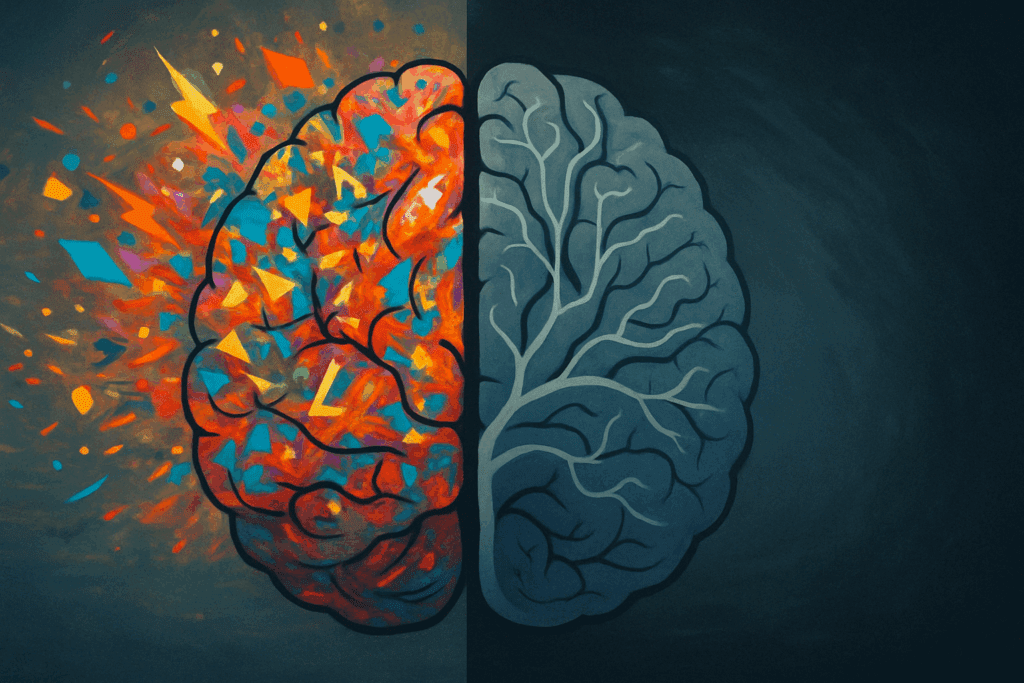
Criteria for Evaluating Natural Herbs for ADHD
Selecting the best herb for ADHD requires a careful, evidence-based approach. Key criteria include scientific validation, safety profile, neurochemical mechanisms of action, and consistency of results across different studies. Ideally, herbs used for ADHD should enhance dopamine and norepinephrine function, support neuroprotection, and reduce inflammation, all without inducing significant side effects. Furthermore, they should integrate naturally into a balanced lifestyle, complementing other wellness practices such as proper sleep, nutrition, and the use of brain food drinks designed to bolster cognitive performance.
Bacopa Monnieri: The Foremost Contender for Natural ADHD Support
Among all the herbs studied for ADHD, Bacopa monnieri consistently rises to the top. Often referred to as “Brahmi” in Ayurvedic medicine, Bacopa has a rich history of use for memory enhancement, learning speed, and stress resilience. Modern clinical trials have corroborated many of these traditional claims, demonstrating Bacopa’s ability to improve attention, reduce hyperactivity, and support working memory. The herb’s bioactive compounds, called bacosides, promote synaptic communication, enhance antioxidant defenses, and may even upregulate acetylcholine production in the brain. These effects position Bacopa as a natural complement to broader cognitive strategies, including the strategic use of brain food drinks that nourish neuronal health and answer the question of what drink improves memory.
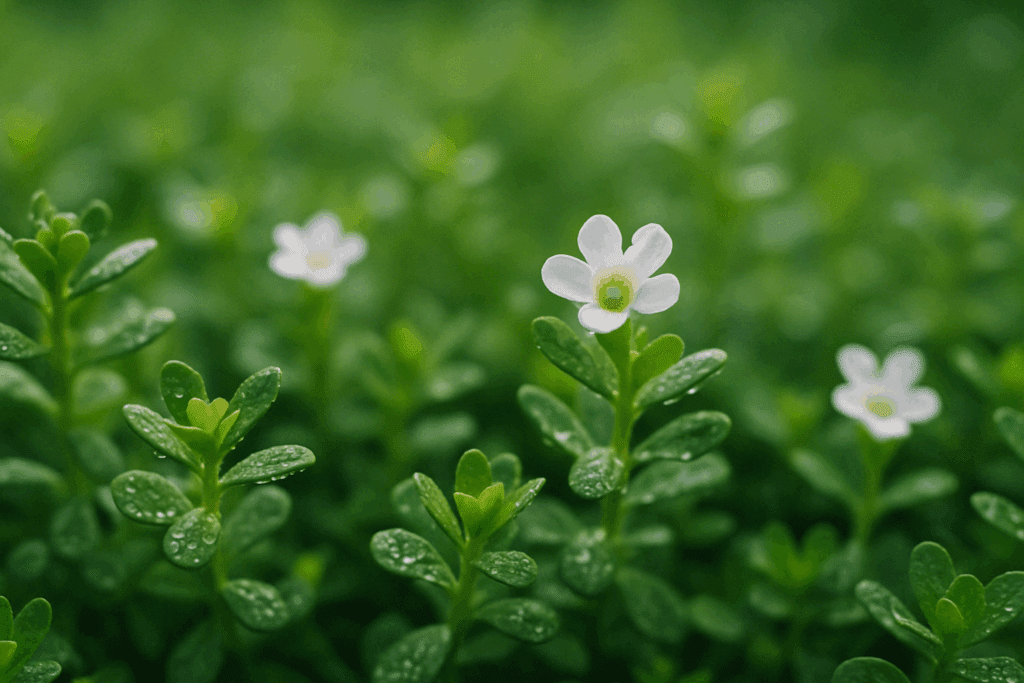
Scientific Evidence Supporting Bacopa for ADHD
Multiple randomized, placebo-controlled trials have illustrated Bacopa’s benefits for cognitive performance in both healthy individuals and those with ADHD. A landmark study published in Advances in Mind-Body Medicine found that Bacopa supplementation significantly improved attention, impulse control, and hyperactivity among children with ADHD over a 12-week period. Notably, the improvements were not immediate but became increasingly evident after eight to twelve weeks of continuous use, highlighting the importance of consistency and patience with herbal interventions. This gradual but sustainable effect distinguishes Bacopa from many conventional stimulants, which often provide short-term relief but carry a risk of side effects like insomnia or appetite suppression. Integrating Bacopa into a daily regimen alongside a brain food drink can create a synergistic effect, reinforcing focus and memory retention naturally.
Other Notable Herbs for ADHD and Cognitive Support
While Bacopa Monnieri holds the crown, it is by no means the only botanical worthy of attention. Ginkgo biloba, Panax ginseng, and Rhodiola rosea each offer unique mechanisms that may benefit individuals with ADHD. Ginkgo biloba, famed for its role in enhancing blood flow to the brain, may support mental clarity and working memory. Panax ginseng, with its adaptogenic properties, helps regulate stress responses and bolster energy without overstimulation. Rhodiola rosea, another adaptogen, shows promise for improving mood and mental endurance, particularly under conditions of chronic stress or cognitive fatigue. These herbs, when thoughtfully combined with nutrient-rich brain food drinks, present a multifaceted approach to cognitive wellness that transcends a purely pharmacological model.
The Role of Nutrition and Brain Food Drinks in ADHD Management
No discussion of natural ADHD support would be complete without acknowledging the profound impact of nutrition. Nutrient-dense foods and beverages can directly influence neurotransmitter production, inflammation levels, and oxidative stress in the brain. Brain food drinks, often formulated with ingredients like blueberries, matcha, turmeric, and omega-3 fatty acids, provide concentrated sources of neuroprotective compounds. Regular consumption of a brain food drink tailored for cognitive health not only supports memory but also optimizes mental energy and resilience. Answering what drink improves memory, studies suggest that beverages rich in polyphenols, such as blueberry smoothies or green tea elixirs, show measurable benefits in cognitive performance tests.
Synergistic Strategies: Combining Herbs, Brain Food Drinks, and Lifestyle Habits
Maximizing the benefits of herbal interventions for ADHD requires a comprehensive lifestyle approach. Regular physical exercise, adequate sleep, mindfulness practices, and strategic supplementation all contribute to a healthier cognitive environment. Incorporating a daily brain food drink into this regimen amplifies the positive effects by ensuring that the brain receives the nutrients it needs for optimal function. Herbs like Bacopa work at the neurochemical level, while brain food drinks address foundational needs like antioxidant protection and metabolic efficiency. Together, they create a powerful synergy that nurtures both immediate cognitive performance and long-term brain health.
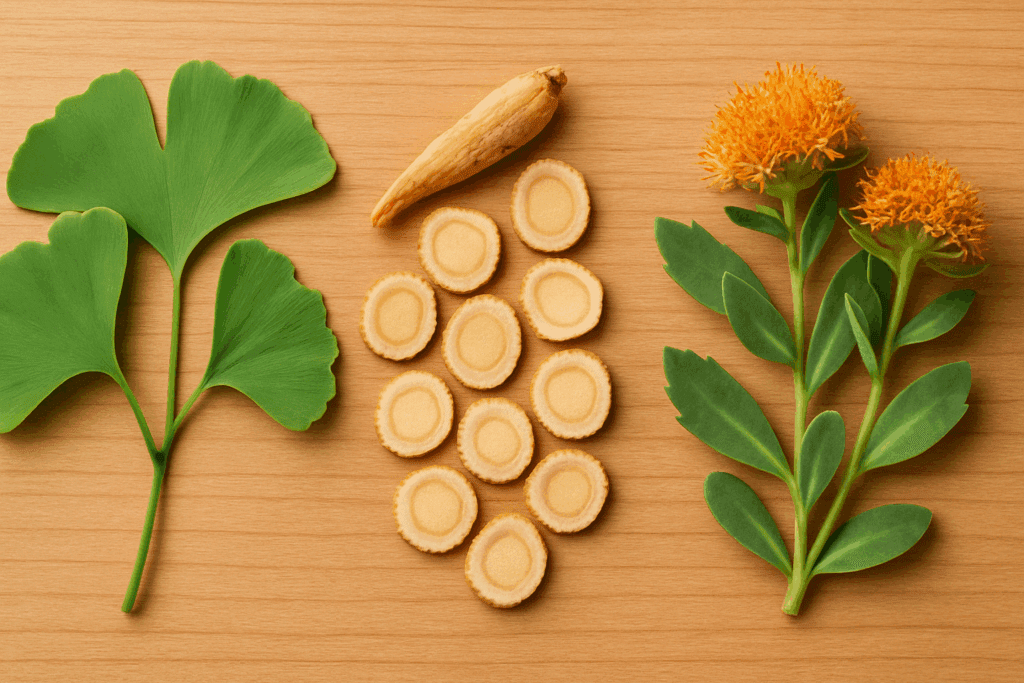
Potential Risks and Considerations When Using Herbs for ADHD
Although herbs offer promising benefits, they are not without risks. Bacopa monnieri, for example, can cause gastrointestinal upset in sensitive individuals, particularly when taken on an empty stomach. Interactions with prescription medications are another critical consideration, necessitating consultation with a healthcare provider before beginning any new supplement regimen. Quality and sourcing of herbal products also play a significant role in safety and efficacy. Choosing standardized extracts from reputable brands ensures consistent dosing and reduces the risk of contamination. When integrating a brain food drink into the daily routine, it is equally important to verify ingredient transparency and avoid excessive added sugars, which can counteract cognitive benefits.
Emerging Research and Future Directions in Herbal Cognitive Enhancement
The landscape of herbal research for ADHD and cognitive enhancement continues to evolve. Novel studies are investigating synergistic combinations of herbs, such as Bacopa paired with Ginkgo biloba, to amplify benefits while minimizing adverse effects. Advances in delivery systems, such as liposomal formulations and nootropic-infused brain food drinks, promise to enhance bioavailability and therapeutic impact. Researchers are also examining the genetic factors that influence individual responses to herbal supplements, heralding a new era of personalized nootropic medicine. As science delves deeper, the hope is that natural solutions will become an increasingly mainstream component of ADHD management, offering safer, more sustainable pathways to cognitive empowerment.
Practical Guidance for Integrating Herbs and Brain Food Drinks into Your Routine
Consistency is key when adopting herbal interventions for ADHD. Clinical studies on Bacopa, for instance, typically demonstrate benefits after eight to twelve weeks of continuous use. Establishing a daily routine that includes a standardized Bacopa extract, complemented by a thoughtfully formulated brain food drink, provides a solid foundation for cognitive improvement. Morning consumption aligns well with the body’s natural cortisol rhythm, supporting alertness and focus throughout the day. When selecting a brain food drink, prioritize formulations rich in polyphenols, omega-3s, and adaptogenic botanicals. Over time, the integration of these natural supports can yield profound improvements in attention, memory, and emotional regulation.
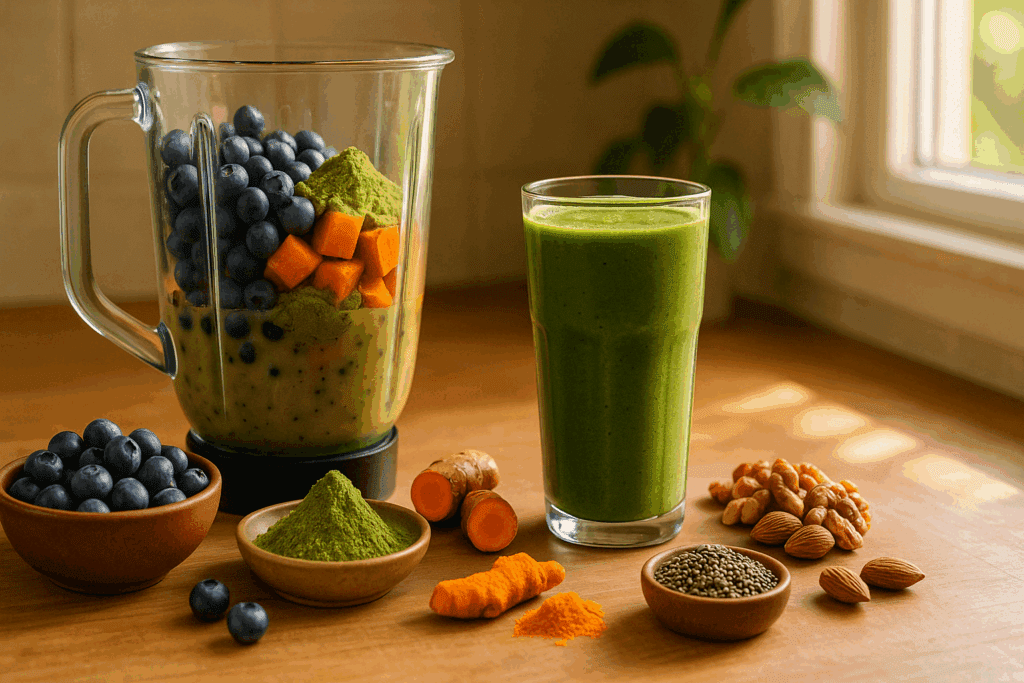
Frequently Asked Questions: Natural Solutions for ADHD, Focus, and Cognitive Support
1. Can herbs really match the effectiveness of prescription ADHD medications?
While herbs typically do not act as quickly or powerfully as stimulant medications, they offer compelling advantages for long-term cognitive support. Herbal interventions like Bacopa monnieri work gradually by improving neuroplasticity, reducing oxidative stress, and balancing neurotransmitter levels. Unlike many pharmaceuticals, they tend to support the underlying health of brain systems rather than simply masking symptoms. Pairing an herbal regimen with a nutrient-rich brain food drink can enhance these benefits by providing the vitamins and antioxidants needed for sustained cognitive function. In many cases, those seeking a gentler, holistic approach find that natural strategies help cultivate resilience without the side effects often associated with conventional medications.
2. How long does it take to notice results when using herbs like Bacopa for ADHD?
Consistency and patience are crucial when using herbs for cognitive health. Most clinical studies indicate that Bacopa monnieri requires at least eight to twelve weeks of continuous use to achieve noticeable improvements in attention, memory, and executive function. Factors like diet, sleep quality, and daily habits also significantly influence outcomes. Incorporating a daily brain food drink rich in polyphenols and omega-3s can accelerate these benefits by supporting neurochemical balance. For those wondering what drink improves memory during this process, blueberry-based beverages and matcha green tea stand out for their well-documented cognitive-enhancing properties.
3. What emerging herbal blends show promise for ADHD beyond single-ingredient supplements?
Researchers are now exploring multi-herb formulations designed to target different aspects of ADHD symptomatology simultaneously. Blends combining Bacopa monnieri with Ginkgo biloba and Rhodiola rosea, for instance, may enhance focus, emotional regulation, and stress resilience more effectively than any one herb alone. Early pilot studies suggest synergistic effects, although more large-scale trials are needed. To optimize results, some wellness practitioners recommend pairing these herbal blends with a customized brain food drink that further supplies key nutrients like magnesium and phosphatidylserine, crucial for synaptic function and memory support. As the field grows, these integrated approaches will likely become mainstream options.
4. Are there specific lifestyle factors that can amplify the effectiveness of natural ADHD treatments?
Absolutely. Herbs and supplements are most effective when supported by strong lifestyle foundations. Regular aerobic exercise increases brain-derived neurotrophic factor (BDNF), enhancing the plasticity improvements initiated by herbs like Bacopa. Mindfulness meditation helps train sustained attention, complementing biochemical interventions. Moreover, consistently consuming a brain food drink fortified with cognitive-supportive ingredients fosters a nutrient environment where herbal therapies can exert their full benefits. For individuals exploring what drink improves memory while adopting a holistic lifestyle, beverages infused with turmeric, green tea extract, and berries offer exceptional promise.
5. What role does hydration play in brain performance for individuals with ADHD?
Hydration is a frequently overlooked yet critical factor in cognitive performance. Even mild dehydration can impair attention span, working memory, and executive function, which are already areas of vulnerability for those with ADHD. Incorporating hydrating options like a daily brain food drink not only addresses fluid balance but also delivers essential micronutrients that the brain craves for optimal function. When considering what drink improves memory, electrolyte-enhanced natural beverages with no added sugars should rank high on the list. Proper hydration amplifies the effectiveness of both herbal supplements and other cognitive interventions.
6. Are there any risks associated with combining herbal supplements and brain food drinks?
Generally, combining herbal supplements and brain food drinks is safe when using high-quality, responsibly formulated products. However, individuals must be cautious about overlapping ingredients that could lead to excessive intake of certain compounds, such as ginseng or caffeine. Reading labels carefully and consulting with a knowledgeable healthcare provider ensures that combinations are synergistic rather than antagonistic. A well-chosen brain food drink should complement the herbal regimen, delivering targeted support without overwhelming the system. Those interested in optimizing what drink improves memory should prioritize beverages that balance cognitive enhancement with overall system wellness.
7. How do brain food drinks enhance neuroplasticity alongside herbal treatments?
Brain food drinks often contain ingredients that directly support the biological processes of neuroplasticity, such as omega-3 fatty acids, flavonoids, and antioxidants. These compounds work at the cellular level, reducing oxidative stress and promoting the growth of new neural connections. When paired with herbs like Bacopa that stimulate synaptic activity, the result is a potent amplification of cognitive adaptation and learning potential. Understanding what drink improves memory involves recognizing that beverages rich in nutrients like DHA and curcumin can dramatically enhance the brain’s capacity to remodel and strengthen neural networks. Together, herbs and brain food drinks foster a fertile internal environment for lasting cognitive transformation.
8. Can specific brain food drinks be tailored to different types of ADHD symptoms?
Yes, personalized nutrition is a growing trend in ADHD management. For example, individuals who struggle primarily with hyperactivity may benefit from calming brain food drinks containing adaptogens like ashwagandha and L-theanine. Those facing challenges with inattention might respond better to drinks emphasizing antioxidants, B vitamins, and moderate natural caffeine sources like matcha. When asking what drink improves memory and focus, it’s essential to consider the individual’s unique symptom profile. Tailoring a brain food drink to these needs ensures that dietary interventions are targeted, efficient, and maximally supportive.
9. How might future innovations enhance the effectiveness of herbs and brain food drinks for ADHD?
Emerging technologies such as liposomal encapsulation and nanotechnology are poised to dramatically improve the bioavailability of herbal extracts and nutrients in brain food drinks. This means that smaller doses could achieve greater effects with reduced digestive strain. Additionally, advances in genetic testing may soon allow for truly personalized nootropic and nutritional protocols, optimizing herbal and dietary interventions based on an individual’s unique cognitive blueprint. As researchers continue uncovering what drink improves memory on a molecular level, we can expect increasingly sophisticated beverages engineered to deliver potent cognitive benefits in highly targeted ways.
10. What are some practical tips for integrating herbs and brain food drinks into a busy daily routine?
Building habits around timing and preparation is key. Setting a specific morning ritual involving a high-quality brain food drink and a standardized herbal supplement ensures consistency. Pre-making brain food drinks the night before, using portable bottles, and choosing shelf-stable herbal capsules simplifies adherence even on hectic days. Knowing what drink improves memory allows individuals to make informed choices even when grabbing a beverage on the go, steering toward options rich in blueberries, matcha, or turmeric. With thoughtful planning, natural cognitive support can become a seamless, effortless part of daily life, enhancing focus, creativity, and emotional resilience.
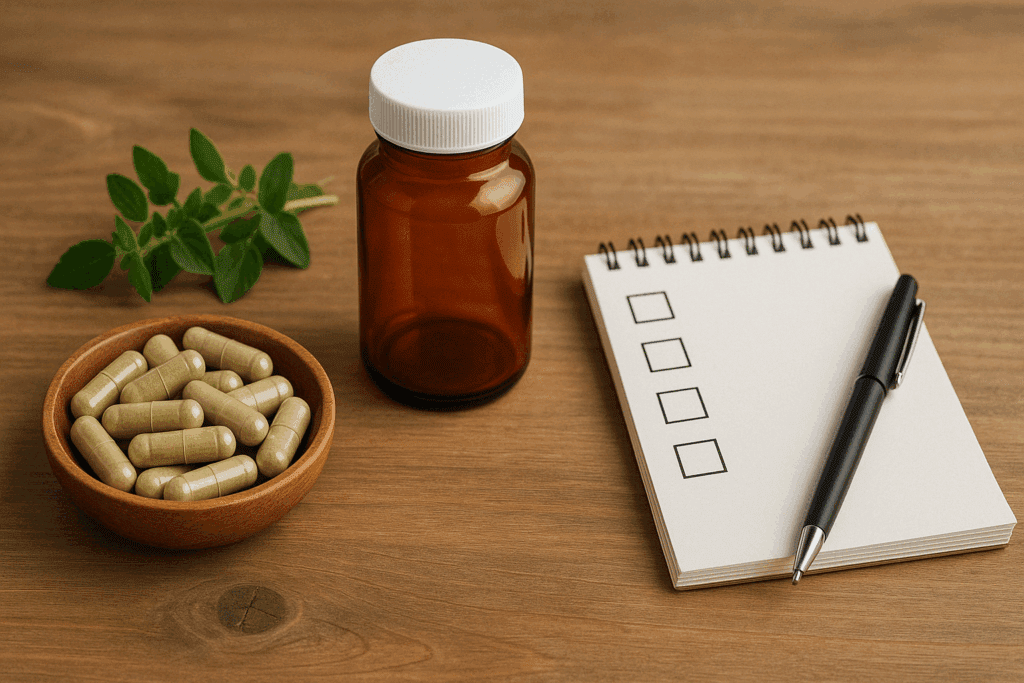
Conclusion: Harnessing the Power of Natural Solutions for Lasting Cognitive Health
The search for effective, sustainable ADHD management strategies leads inevitably to the wisdom of nature. Herbs like Bacopa monnieri, supported by growing scientific validation, offer a gentle yet potent alternative for enhancing focus, memory, and cognitive resilience. When integrated with a holistic lifestyle that includes nutrient-dense brain food drinks, regular physical activity, and mindfulness practices, these natural solutions present a comprehensive, empowering path forward. Understanding what drink improves memory and strategically utilizing brain food drinks in combination with herbal supplements can create a synergistic effect that enhances both daily functioning and long-term brain health. As emerging research continues to unfold, one truth remains clear: nurturing cognitive vitality through natural means is not only possible but increasingly essential in our fast-paced, demanding world.
Was this article helpful? Don’t let it stop with you. Share it right now with someone who needs to see it—whether it’s a friend, a colleague, or your whole network. And if staying ahead on this topic matters to you, subscribe to this publication for the most up-to-date information. You’ll get the latest insights delivered straight to you—no searching, no missing out.
Further Reading:
Buffer Your ADHD Brain for Greater Clarity and Focus
Important Note: The information contained in this article is for general informational purposes only, and should not be construed as health or medical advice, nor is it intended to diagnose, prevent, treat, or cure any disease or health condition. Before embarking on any diet, fitness regimen, or program of nutritional supplementation, it is advisable to consult your healthcare professional in order to determine its safety and probable efficacy in terms of your individual state of health.
Regarding Nutritional Supplements Or Other Non-Prescription Health Products: If any nutritional supplements or other non-prescription health products are mentioned in the foregoing article, any claims or statements made about them have not been evaluated by the U.S. Food and Drug Administration, and such nutritional supplements or other health products are not intended to diagnose, treat, cure, or prevent any disease.


